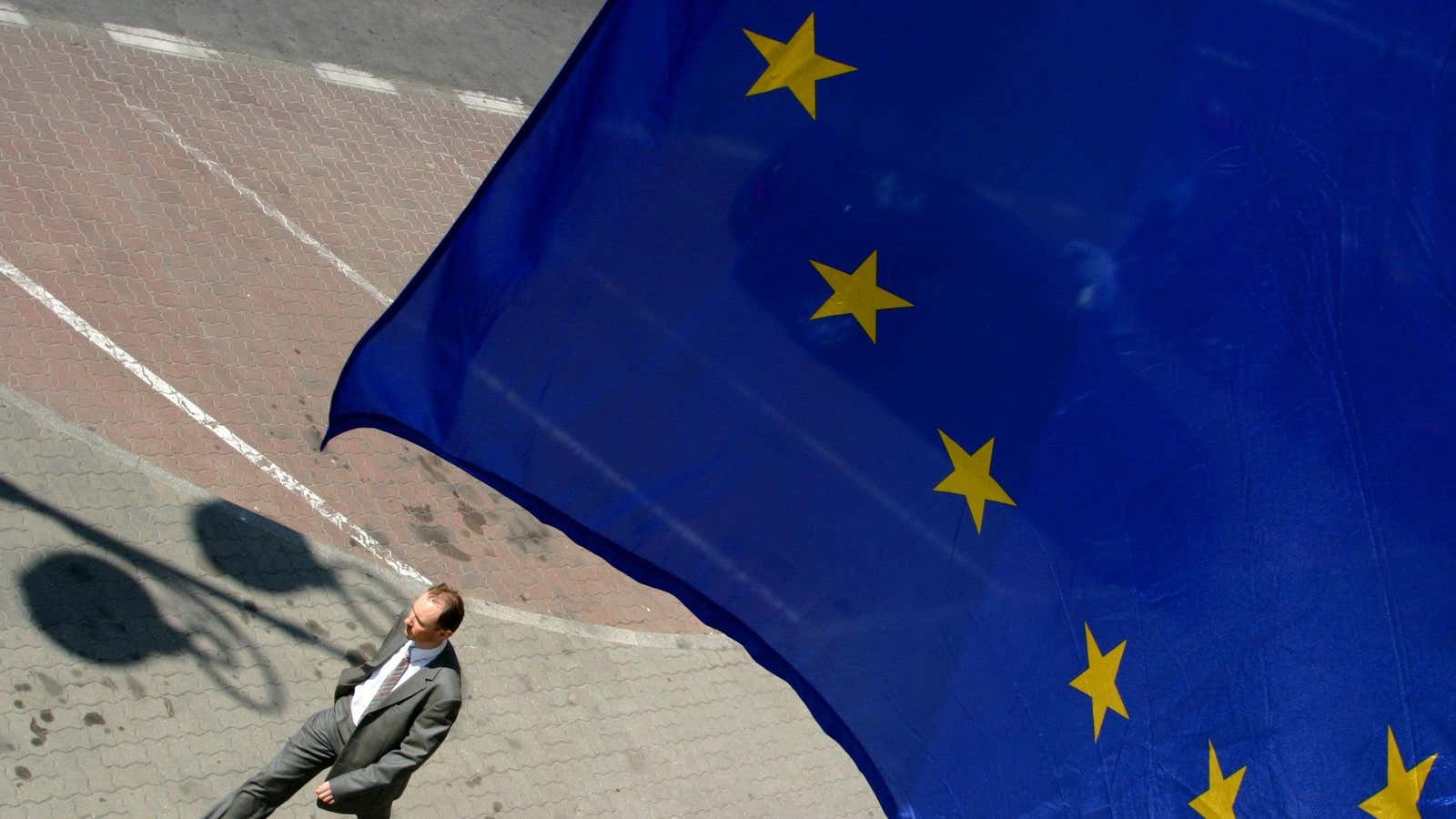After scaling back its darkest forecasts for the European economy in November, Goldman Sachs has now fully withdrawn its recession call for the euro area.
Economists working under Sven Jari Stehn say they now anticipate a growth rate of 0.6% for the euro area in 2023. Previously, they had predicted an economic contraction of 0.1% for the region.
Lower natural gas prices and China’s reopening support the more hopeful projection, they said.
The consensus forecast among economists polled by FactSet is for a 0.1% drop in GDP for the euro zone in 2023.
Jobs, inflation
Goldman’s economists revised their outlook for the local job market, anticipating greater durability and salary increases of 5% annually in the first quarter as a result of union settlements and companies responding to inflation rates.
On the inflation front, the analysts see prices moving up by 3.3% at the end of the year as the area recovers from inflation’s peak—and benefits from falling prices for natural gas and other products.
More interest rate hikes by the ECB ahead?
This also suggests that the European Central Bank will keep raising interest rates. The economists expect the ECB to hike by 50 basis points in February and March and to eventually push the benchmark interest rate by May to 3.25%, where they think it will stay until late 2024.
The economists kept their recession forecast for the UK, however, but upgraded it from a contraction of 1% for the year to a contraction of 0.7%. They argued the Bank of England is likely going to deliver another 100 basis-point rate hike despite the recession risk.
For more Quartz coverage of the global economy, visit us here. And don’t forget to sign up for our Need to Know: Davos newsletter, covering the 2023 annual meeting of the World Economic Forum.
